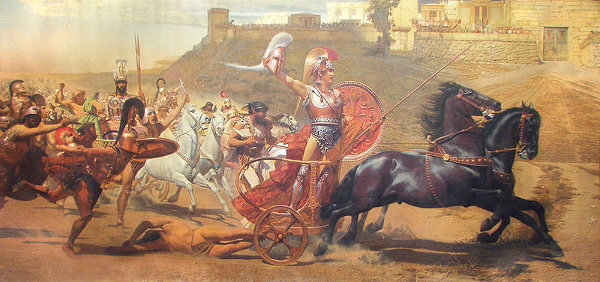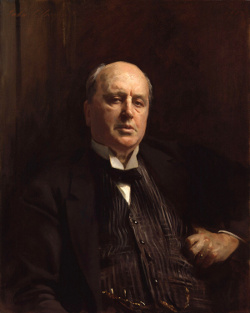
“‘There really are fictional heroes’ sounds true, but ‘Fictional heroes really exist’ sounds false.”
— James Cargile, Paradoxes, 1979

“‘There really are fictional heroes’ sounds true, but ‘Fictional heroes really exist’ sounds false.”
— James Cargile, Paradoxes, 1979
In the November 2010 Word Ways, Mike Keith notes a striking coincidence:
Bible’s Machine and Welding
6499 Blue Springs Pkwy
Mosheim, TN 37818
That’s the address of a machine shop in eastern Tennessee, presumably owned by a family named Bible. Enter the zip code in a calculator and turn it upside down.
There is a tradition to the effect that Noel Coward once sent identical notes to the twenty most prominent men in London, saying, ‘All is discovered. Escape while you can.’
All twenty abruptly left town.
— Paul C. Sherr, The Short Story and the Oral Tradition, 1970
The newspaper man, indeed, is a dangerous person to fool with. He is extremely ingenious in his methods of retaliation. Here is another story in point. One Bennett was city editor of the Cincinnati Enquirer somewhere in the sixties. It was Bennett’s plan, if news were scarce, to make small children–offspring of the brain only–fall from the Newport ferry-boat into the Ohio River, where they would infallibly have been drowned but for the gallant rescue of some by-stander, usually a personal friend of Bennett’s. One of these friends, Kellum by name, grew very weary after he had figured several times as a savior of drowning innocents, and requested that Bennett should desist. So, in next day’s Enquirer, Kellum read that a beautiful little girl, child of a prominent citizen in Newport, had fallen into the river, and that Mr. Kellum, who was standing near and could have rescued her, refused to render the slightest assistance. A few minutes later the maddest man in Cincinnati arrived in the Enquirer office, threatening the direst vengeance on Bennett. But Bennett calmly pulled off his coat, and said, ‘See here, Kellum, you are a good enough fellow in your way, but I can’t stand any interference with my department. If I make any statement in the Enquirer you mustn’t come round here contradicting it. That isn’t journalism.’
— William Shepard Walsh, Handy-Book of Literary Curiosities, 1892
Miami University French professor Howard Chace composed stories in what he called the “Anguish languish” to show the importance of intonation in conveying meaning. This example, “Ladle Rat Rotten Hut,” was written in 1940 and appeared subsequently in the Los Angeles Times. Read it aloud:
Wants pawn term, dare worsted ladle gull hoe lift wetter murder inner ladle cordage honor itch offer lodge dock florist. Disc ladle gull orphan worry ladle cluck wetter putty rat hut, end fur disc raisin, pimple colder ladle rat rotten hut.
Wan moaning rat rotten hut’s murder colder inset: “Ladle rat rotten hut, heresy ladle basking winsome burden barter an shirker car keys. Tick disc ladle basking tudor cordage offer groin murder honor udder site offer florist. Shaker lake, dun stopper laundry wrote, end yonder nor sorghum stenches dun stopper torque wet strainers.”
“Hoe-cake, murder,” resplendent ladle rat rotten hut, end tickle ladle basking an stuttered oft. Honor wrote tudor cordage offer groin murder, ladle rat rotten hut mitten anamolous woof. “Wail, wail, wail,” set disc wicket woof, “evanescent ladle rat rotten hut! Wares oar putty ladle gull goring wizard ladle basking?”
“Armor goring tumor groin murder’s,” reprisal ladle gull. “Grammar’s seeking bet. Armor ticking arson burden barter end shirker car keys.”
“O hoe! Heifer blessing woke,” setter wicket woof, butter taught tomb sheft, “Oil tickle shirt court tudor cordage offer groin murder. Oil ketchup wetter letter, an den — O bore!”
Soda wicket woof tucker shirt court, end whinny retched a cordage offer groin murder, hee picket inner widow end sore debtor pore oil worming wurst lion inner bet. Inner flesh, disc abdominal woof lipped honor betting adder rope. Zany pool dawn err groin murder’s nut cup an gnat gun, any curdled dope inner bet.
Inner ladle wile, ladle rat rotten hut a raft attar cordage end ranker dough bill. “Comb ink, sweat hard,” setter wicket woof, disgracing is verse. Ladle rat rotten hut entity bet rum end stud buyer groin murder’s bet.
“O Grammar,” crater ladle gull, “Wart bag icy gut! A nervous sausage bag ice!”
“Buttered lucky chew whiff, doling,” whiskered disc ratchet woof, wetter wicked small.
“O Grammar, water bag noise! A nervous sore suture anomalous prognosis!”
“Buttered small your whiff,” inserter woof, ants mouse worse waddling.
“O Grammar, water bag mousey gut! A nervous sore suture bag mouse!”
Daze worry on forger nut gulls lest warts. Oil offer sodden, throne offer carvers and sprinkling otter bet, disc curl and bloat Thursday woof ceased pore ladle rat rotten hut an garbled erupt.
Mural: Yonder nor sorghum stenches shut ladle gulls stopper torque wet strainers.

Despite his literary brilliance, Henry James was absurdly prolix in his daily life. Reportedly he once asked a waiter to “bring me … fetch me … carry me … supply me … in other words (I hope you are following me) serve–when it is cooked … scorched … grilled I should say–a large … considerable … meaty (as opposed to fatty) … chop.”
Once while motoring through England with Edith Wharton, James lost his way and hailed an old man at the side of the road. “My good man, if you’ll be good enough to come here, please; a little nearer–so. My friend, to put it to you in two words, this lady and I have just arrived here from Slough; that is to say, to be more strictly accurate, we have recently passed through Slough on our way here, having actually motored to Windsor from Rye, which was our point of departure; and the darkness having overtaken us, we should be much obliged if you would tell us where we now are in relation, say, to the High Street, which, as you of course know, leads to the Castle, after leaving on the left hand the turn down to the railway station.”
The old man looked blank. “In short, my good man,” said James, “what I want to put to you in a word is this: Supposing we have already (as I have reason to think we have) driven past the turn down to the railway station (which in that case, by the way, would probably not have been on our left hand, but on our right), where are we now in relation to–”
“Oh, please,” said Wharton, “do ask him where the King’s Road is.”
“Ah–? The King’s Road? Just so! Quite right! Can you, as a matter of fact, my good man, tell us where, in relation to our present position, the King’s Road exactly is?”
“Ye’re in it,” said the man.

In English, the name of each integer shares a letter with each of its neighbors. ONE shares an O with TWO, TWO shares a T with THREE … and so on to infinity.
On being told the house doctor was coming, Max Baer said, “No, dummy, I need a people doctor.”
Hart Crane, jumping overboard: “Goodbye, everybody!”
Edison emerged from a coma to say, intriguingly, “It is very beautiful over there.”
James Joyce, fittingly: “Does nobody understand?”
Mahler: “Mozart!”
William Saroyan: “Everybody has got to die, but I have always believed an exception would be made in my case. Now what?”
Ernest Shackleton, to his doctor: “You are always wanting me to give up something. What do you want me to give up now?”
In 1922, Ernest Hemingway’s wife lost a suitcase full of his early manuscripts at the Gare de Lyons as she was traveling to meet him in Geneva. It was never recovered.
In 1919, T.E. Lawrence misplaced his briefcase while changing trains at Reading railway station. It had contained the first eight books of Seven Pillars of Wisdom. He, too, had to start again.
In 1835, when Thomas Carlyle had finished writing the first volume in his history of the French Revolution, he loaned the manuscript to John Stuart Mill, seeking his opinion. Mill’s maid mistook it for trash and burned it.
“I remember and can still remember less of it than of anything I ever wrote with such toil,” Carlyle wrote in his journal. After laboriously rewriting the volume, he said he felt like a man who had “nearly killed himself accomplishing zero.”

What is gopher wood? Noah used it to build his ark, but there’s no other reference to it in the Bible.
Similarly, no one’s quite sure what a kankedort is. It appears in one passage in Chaucer’s Troilus and Criseyde:
Was Troilus nought in a kankedort,
That lay, and myghte whisprynge of hem here,
And thoughte, “O Lord, right now renneth my sort
Fully to deye, or han anon comfort!”
The Oxford English Dictionary defines it helplessly as an awkward situation or affair and says it’s “of unascertained etymology.”
See Hapax Legomenon.